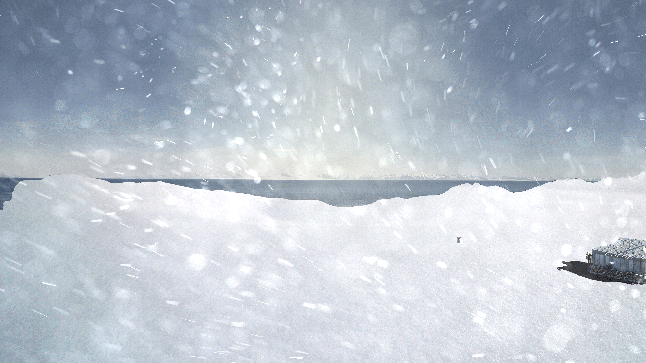
The depths of Antatciat are being exposed,for better or worse (Picture: Metro.co.uk)
Dennis ‘Tink’ Bell,a 25-year-old meteorologist,did something in 1959 that few people to this day have: step into an alien world.
Bell,who grew up in northwest London,spent his days exploring the barren,frozen wasteland of Antarctica,which is often compared to another planet.
The former Royal Air Force radio operator was working for the UK’s polar research institute,the Falkland Islands Dependencies Survey (FIDS).
On July 26,66 years ago,Bell and three other researchers left Admiralty Bay Station to carry out survey work on King George Island,part of the South Shetland Islands,about 75 miles north of Antarctica.
When their sledge dogs grew tired,the group began to climb a glacier,only for the ice to buckle and Bell to plummet into a crevasse.
Blizzard-like conditions made it almost impossible for the other members of the expedition to save him. His body was never recovered.

Dennis Bell (right) celebrating Christmas at Admiralty Bay Station in 1958 (Picture: D Bell/British Antarctic Survey)
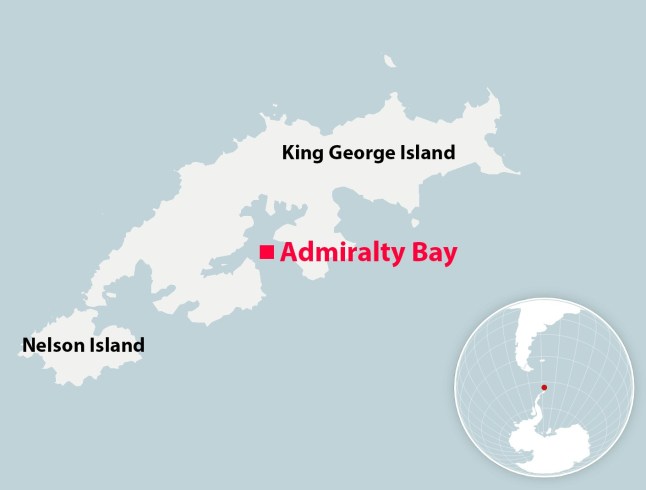
Bell plummeted to his death (Picture: Metro)
That is,until his remains were discovered in January for a simple reason – the glacier had melted.
FIDS,now known as the British Antarctic Survey (BAS),said last month that a Polish team found Bell’s body while combing through loose rocks at the front of the Ecology Glacier.
More than 200 of Bell’s personal items were scattered around his body,including an inscribed Erguel wristwatch,a flashlight,ski poles and a knife.
Scientists later matched DNA samples taken from Bell’s brother,David Bell,and sister,Valerie Kelly,to the remains,confirming it was their missing older brother.
Bell is not alone. BAS told Metro that 29 staff have died in Antarctica since World War II,and 16 of them have never been recovered.
Many of them were scientists,glaciologists,geologists,meteorologists,plumbers and electricians,Oliver Darke,the Director of polar operations,engineering and infrastructure at the BAS,told Metro.
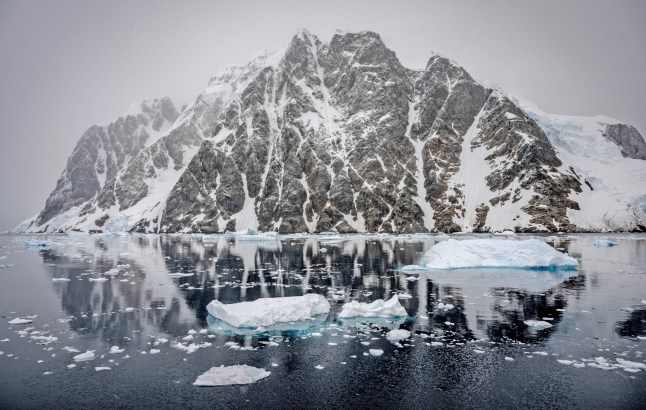
Antarctica is the planet’s climate engine,having a massive influence on the weather (Picture: Anadolu/Getty Images)
‘These were young people who lost their lives in pursuit of what they considered to be a really big question: understanding Antarctica as a continent for science,’ he says.
But while Bell’s family have found a sense of closure decades on,finding the bodies of his colleagues would be like ‘finding a needle in a haystack’.
‘Antarctica is twice the size of Australia and the ice that forms around it every winter is over 18 million square kilometres,’ Darke says.
‘I wouldn’t say it’s impossible,but what I wouldn’t want to do is for families of other fatalities in Antarctica to feel like,every six weeks,we’re going to find somebody.
‘I think this is a very rare thing that we’re dealing with.’
Ice,however,is not just melting in Antarctica. Darke says that the remains of people long thought lost may be found in the Alps and the Himalayas.
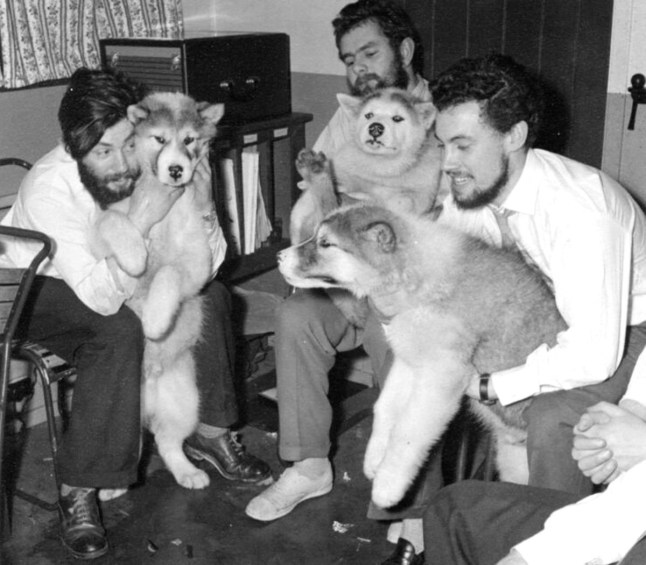
Bell (left) with his research colleagues and the dogs that helped them work in Antarctica in 1959 (Picture: British Antarctic Survey)
Denise Syndercombe Court,a professor in forensic genetics at King’s College London,will be on call when and if that happens.
Court tested samples of the human remains discovered in January – a molar,heel bone and a small foot bone – to see if they were Bell.
‘We had a very good match,certainly more than a billion times likely he was the brother of the two siblings,’ Court explained to Metro,adding that a Sussex coroner later carried out an inquest.
‘DNA gradually degrades over time,and low temperature helps preserve it. If other body parts are found,a similar process will happen so we can confidently hand over the body to their relatives.’
Darke,who has been booking flights and ships to the South Pole for the last decade,would be the first to say Antarctica is a harsh place.
Our body’s internal thermostat can’t really deal with anything below 36.5°C,let alone the subzero conditions of polar ice caps.
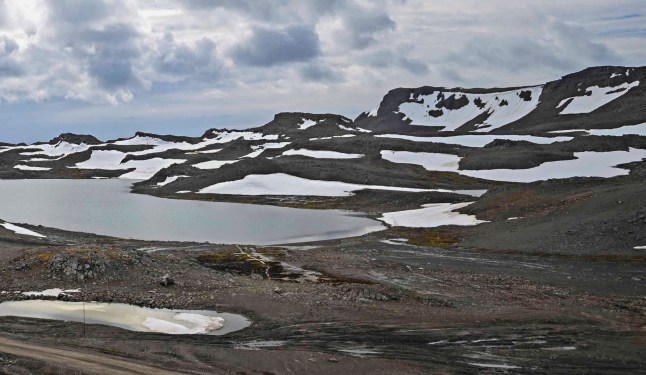
Scientists are growing increasingly alarmed at the speed the ice sheets are retreating (Picture: AFP)
If people fall into a glacial crack or into frigid water,our bodies don’t ‘freeze’ in the way we might think,Clive Coen,professor of neuroscience at King’s College London,told Metro.
‘The body will suffer billions of tiny cracks in response to the conversion of water content into ice,’ he said. ‘You’ve only got to think about the effects of freezing on a tomato or a stalk of celery.’
But that hasn’t stopped people like Bell and Darke from braving the elements for the sake of science – some 1,000 people live in 70 research bases in winter,rising to 5,000 in the warmer months.
‘Antarctica is like a completely other world,like how you’d imagine going to the Moon,’ Darke says.
‘It’s so different to anything else I’ve ever experienced in the world. It’s harsh. It’s desolate. But it’s beautiful. There’s wildlife everywhere – penguins and whales – and incredible weather,like powerful storms.’
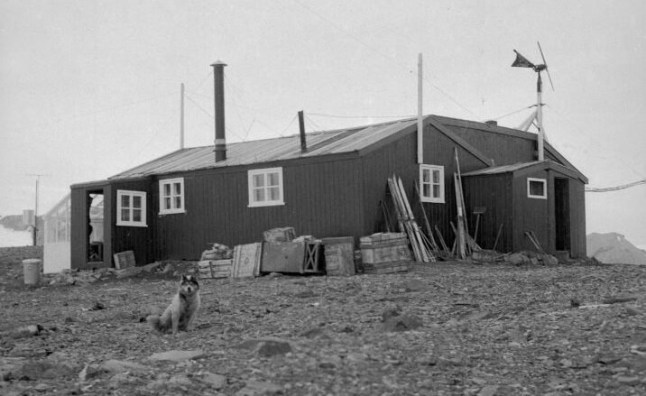
Admiralty Bay Base on King George Island,pictured in 1951 (Picture: Roger Todd-White/British Antarctic Survey)
‘But most days,you’re inside a warm research base waiting for the weather to move on.’
In many ways,the Antarctica that Bell trudged through decades ago is the same as what it is today.
‘Why people go to Antarctica,to answer the questions of the unknown,hasn’t changed much at all,’ Darke says.
‘I’m almost certain that he would recognise the spirit of camaraderie between all the different scientists who go south.’
There are many things he wouldn’t recognise. The ice cap covering Antarctica dwarfs anything of its kind on Earth is melting from below amid climate change,leading to rising sea levels that could gobble up coastal communities.
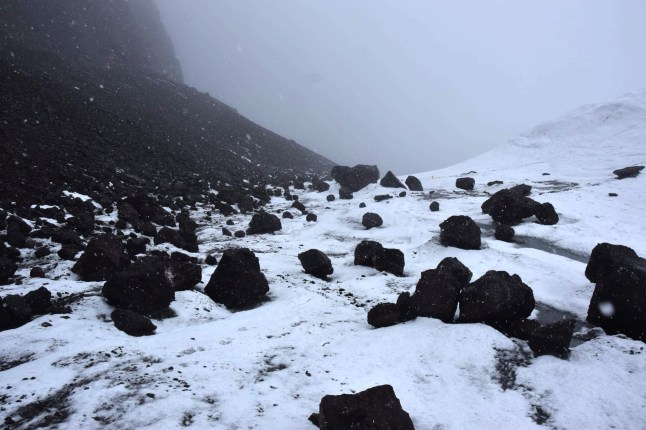
The area where Bell’s remains were discovered decades later,in front of the Ecology Glacier (Picture: Henryk Arctowski/Polish Antarctic Station)
In 2023,researchers said it might be too late to save the western ice sheet. The ramifications will be huge – everything from the howling winds that lash the continent to the oceanic currents that circle it influences the weather hundreds of miles away.
‘I think Bell would be shocked at the scale of the change. There’s no escaping that Antarctica is warmer than it was in the 50s,’ says Darke.
‘What we can’t do is pretend it’s not there. We’ve got to go down there. We’ve got to study it,and we’ve got to understand.’
Bell’s young brother,David,now in his 80s,was ‘shocked’ by the news that his brother’s body had been unearthed,Darke recalled.
He will be meeting with Bell’s relatives,who live in Australia,for lunch in a few weeks.
‘I’m really looking forward to talking to them about Dennis’ legacy,’ he said,describing him as one of the many researchers who have helped us understand the bottom of the world. And certainly not the last.
‘I’m just so pleased we managed to bring them some closure,and allow them an opportunity to say goodbye to Dennis all over again.’
United News - unews.co.za